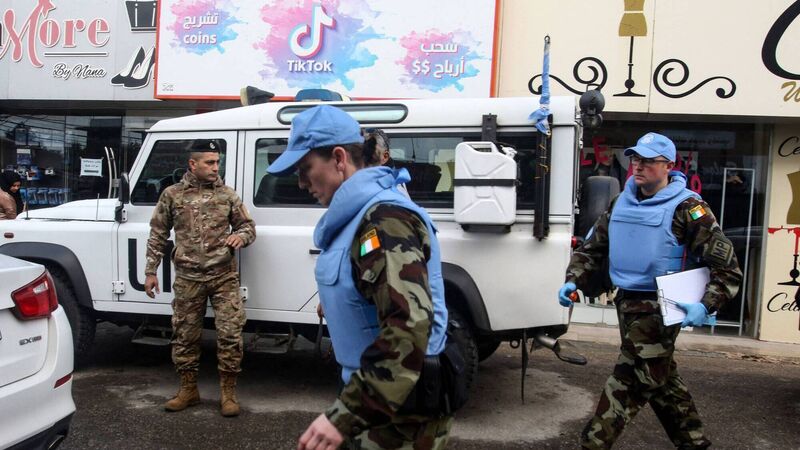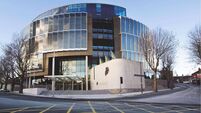Irish peacekeepers live on high alert, ready for any sudden escalation

Irish UN peacekeepers at the site where a UN peacekeeping force Unifil convoy came under fire, killing Private Seán Rooney and injuring three soldiers. Picture: Mahmoud Zayat/AFP via Getty Images
One thing you notice once you leave the relative safety of Beirut in a white UN jeep or mini-bus heading south, is the way the carefree banter largely stops among soldiers in your convoy.
Instead the casual bonhomie gives way to prolonged silences, as the soldiers zone out of everybody else’s conversation, their eyes constantly scanning the cedar-lined roads ahead and on either side of us as we drive.










